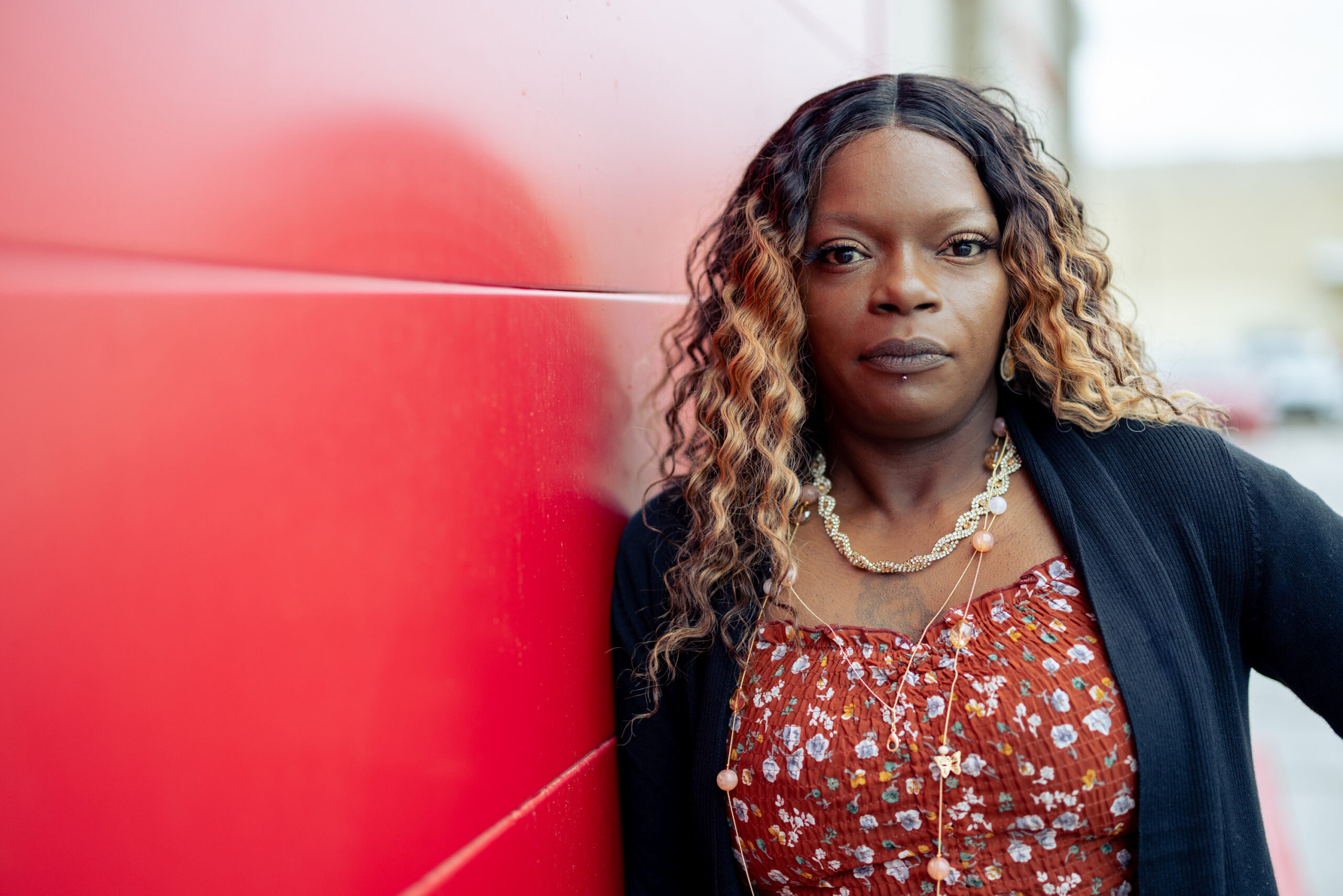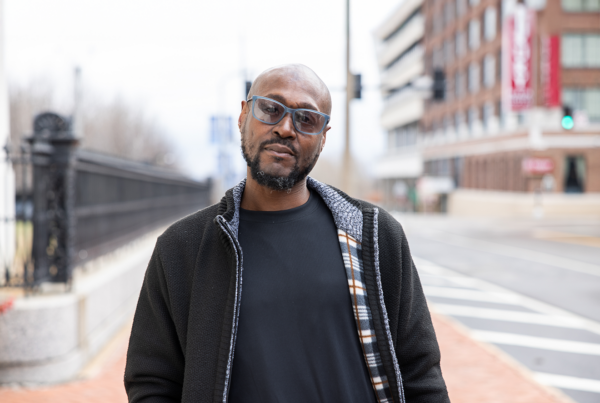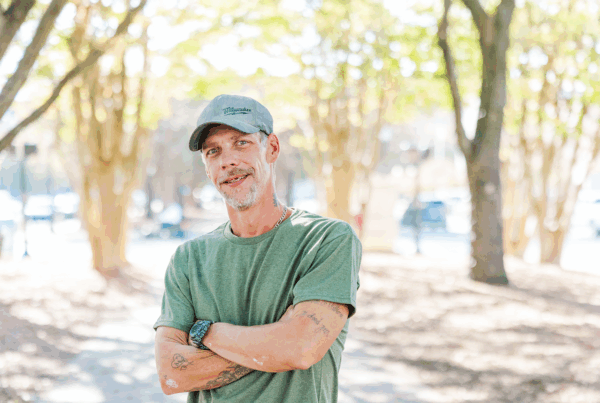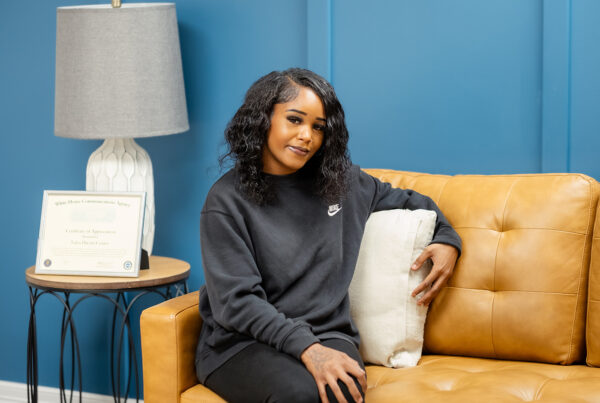Ashley, 39, was nearly eight months pregnant when the Oklahoma City police approached her in early June 2021 while she withdrew cash from an ATM machine. The police asked her for ID and then told her there was an outstanding warrant for her arrest. Caught off guard, Ashley asked what charges had been filed against her. The police refused to answer, forcing her into handcuffs instead.
“They just threw me on the ground,” Ashley said. “They didn’t care that I was pregnant.”
The police took Ashley to jail, where she learned that charges had been filed against her for failing to appear in court on an open nonviolent misdemeanor charge. She had no idea she had missed her court date – she was just like the countless people who miss appointments because of scheduling mishaps. She was fingerprinted, booked into jail, and bail was set at $11,500, which she couldn’t afford. “I [was] on fixed income, I didn’t have the ability to pay,” she said.
Ashley was placed in a cell on the jail’s medical floor with two other women – one who was pregnant and another who was visibly bleeding. Their cell was covered in feces. Ashley wasn’t given a mattress when she arrived, forced to sleep for several nights on the concrete floor even though she was pregnant.
Ashley’s experience in Oklahoma County jail is not a one-off case. Health and safety problems have been ongoing at the facility for years. Since 2021, at least 30 people have died there, making it one of the deadliest correctional facilities in the country. The state’s health department and the National Institute of Corrections, a federal agency, published reports describing the poor conditions of the housing units, where, like Ashley, others were not provided bedding in compliance with department standards.
“It was scary,” Ashley said. “I wouldn’t treat an animal this way, let alone a pregnant person.”
Many of the people at the jail, like Ashley, were subjected to inhumane and inhospitable living conditions simply because they couldn’t afford to pay bail amounts set against them. This outraged her. “I saw women stuck in jail because they don’t have money,” she said.“The system needs to be changed. People need to know.”
Women are the fastest-growing segment of the incarcerated population in America. There are more than 2 million women jailed across America – and a majority have been charged with nonviolent crimes. 80% of them are mothers. Of the women who are jailed each year, 3%, or about 55,000, are pregnant. To make matters worse, few jails have policies and procedures in place for expectant mothers. Many incarcerated women struggle to see medical professionals, let alone receive proper prenatal care or treatment for high-risk pregnancies. In many ways, Black mothers and pregnant women are disproportionately impacted and carry the brunt of this crisis. They are already more economically disadvantaged, face greater health inequities, and are incarcerated at higher rates than white women.
Prior to being incarcerated Ashley had an apartment, was enrolled in school and worked a steady job as a manager at a liquor store. She had been incarcerated for three weeks when The Bail Project received a referral for Ashley. We interviewed her and paid her bail so she could be released. By that time, however, Ashley had lost her job and her apartment. Homeless, with nowhere to go, and eight months pregnant, Ashley slept in her car.
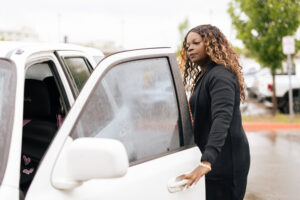
The instability Ashley faced post-release is an example of how the cash bail system harms vulnerable groups. At the time, Ashley was a part of a population of people who policymakers commonly refer to as “high utilizers” – these are people who are repeatedly charged with nonviolent misdemeanors and cycle in and out of jail quickly. The short jail stays are incredibly destabilizing, often affecting housing, employment, and physical and mental health.
Ashley’s intermittent experiences in the jail were also, in large part, due to extensive case filing delays in Oklahoma City. In Ashley’s case, the same day she was released from jail, the state filed a new case against her for allegedly violating a protective order by making phone calls to her brother’s girlfriend. Nine days later, Ashley was rearrested, sent to jail again, and she was released on bail again. Two months after that, and by then nearly nine months pregnant, Ashley was rearrested a third time for allegedly obstructing an officer for the incident that occurred outside of the ATM. For that charge, her bail was set at $500, which she couldn’t afford. She worried she would have her baby in jail. When The Bail Project learned Ashley had been rearrested and was being held on a few hundred dollars, we paid her bail again.
Ashley was thankful to be able to have her child in a hospital, rather than in jail. However, she was still without a place to live. Often, transitional housing is not available due to inadequate funding and extremely high demand. “We slept in a car …for a few weeks after I got out of the hospital,” Ashley said. “Then we went to a shelter.” The stress of her situation negatively impacted her mental health and she knew she needed more support.She sought out therapists at community clinics that provided services at a reduced cost, but they told her they were not accepting new patients and put her on a year-long waiting list. Through it all, The Bail Project supported her in court by providing text reminders. Afterwards, Ashley made it to every single future court appearance.
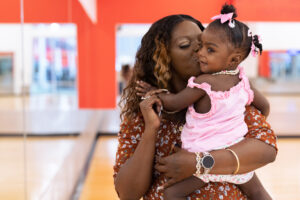
Ashley struggled to find a job. “It’s hard to get a job when you get out of jail. It makes it harder for people not to go back to drugs or whatever you did before,” Ashley said. “There needs to be more opportunities for people than just locking them up. A lot of women have postpartum depression and mental health problems. This needs to be addressed.” She’s not wrong about the systemic issues: almost half of all Black women released from prison or jail are unemployed. “I’ve been through so much in my life and I could go on and be bitter and angry at the world, or I could keep going, ” Ashley said. “I just want people to know, as a person who has been abused, as a person who has lost everything in my life, if we still have breath, we have time.”
In October 2022, Ashley agreed to take a plea bargain so she could put the present situation behind her. She was sentenced to a fine of $230 and served no additional jail time. Despite these most recent setbacks, Ashley is proud of how far she has come. On a recent afternoon in March, Ashley was sitting in her new apartment watching cartoons with her now one-year-old baby girl.
“I own my truck. And I take care of my one-year-old. I have my own house,” Ashley said. “I’ve been trying hard to get myself together. I learned that you need to try to be your best self. Sometimes you can’t depend on anyone else. I haven’t been in any trouble since I got released.
“I’m grateful to wake up every day. I’m grateful that I have my daughter. I’ve struggled so much, but I’ve come so far.”
Thank you for reading. The Bail Project is a 501(c)(3) nonprofit organization that is only able to provide direct services and sustain systems change work through donations from people like you. If you found value in this article, please consider supporting our work today.







